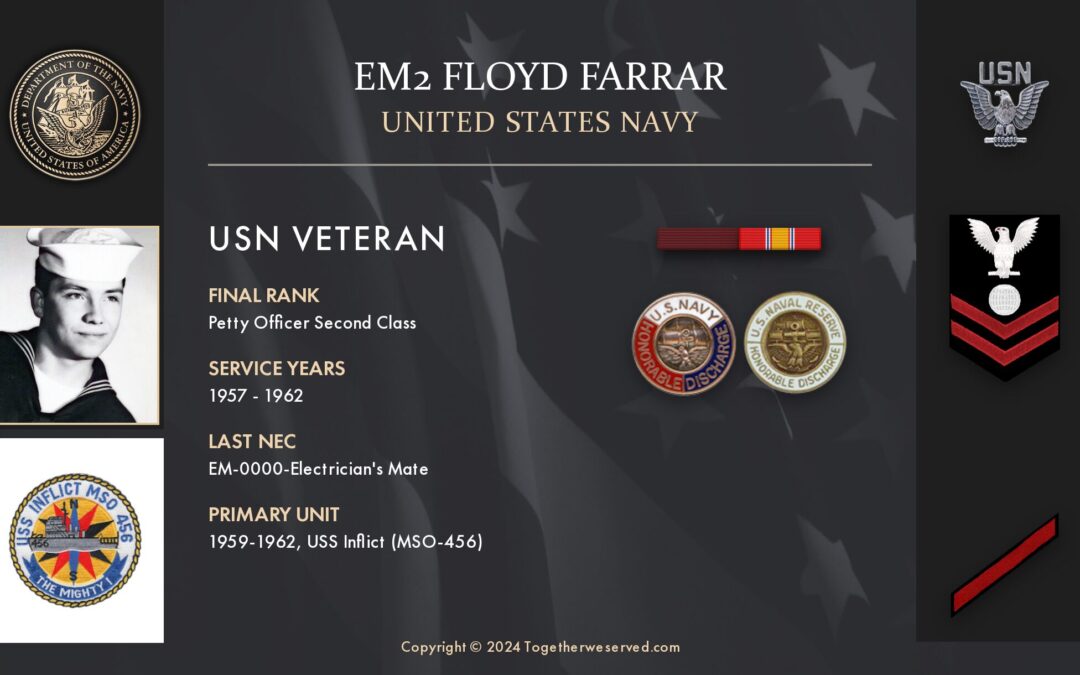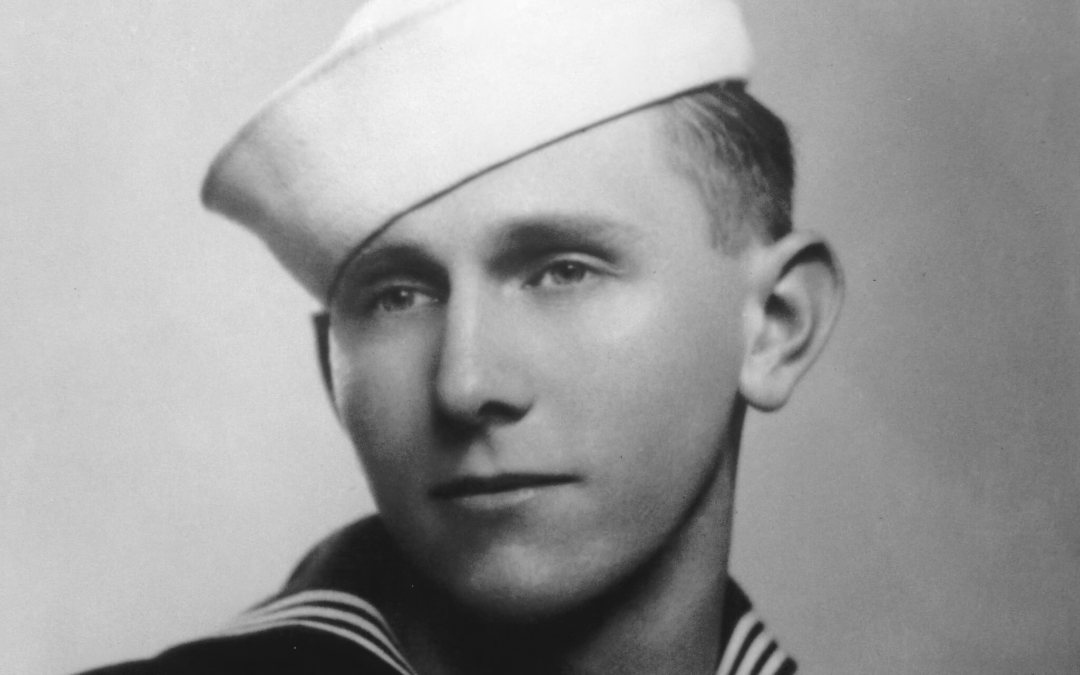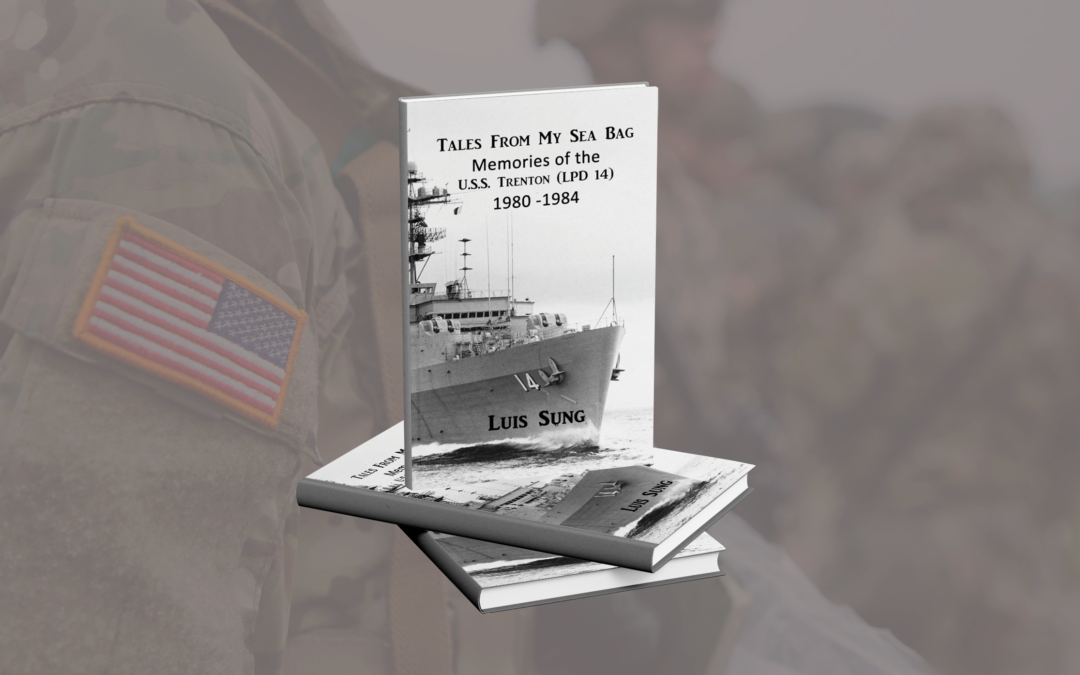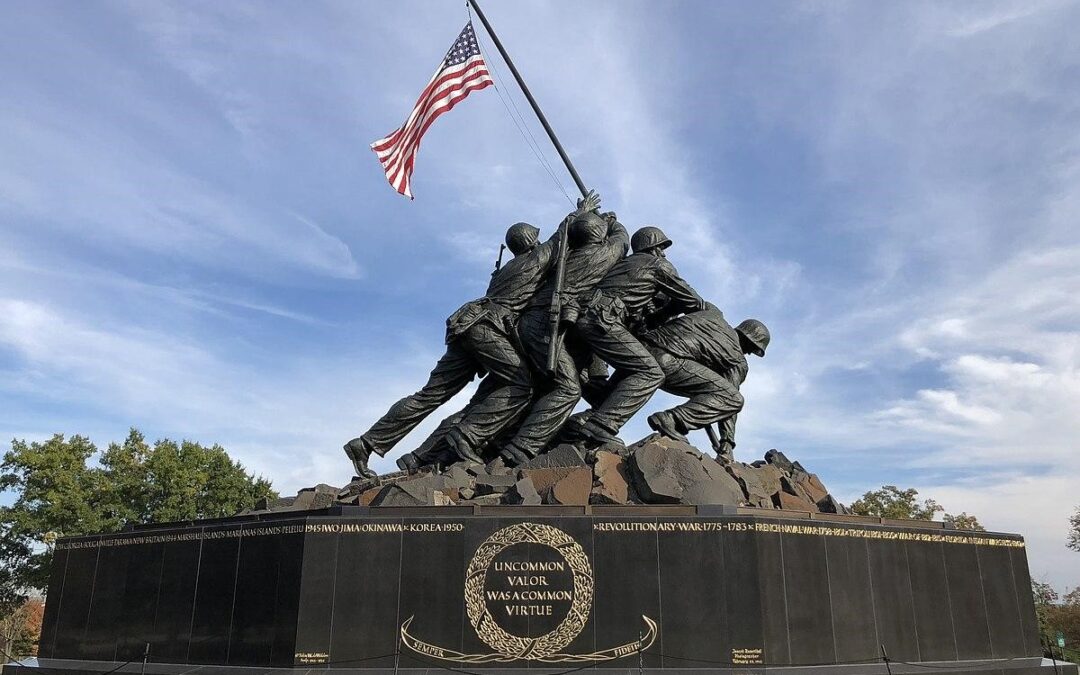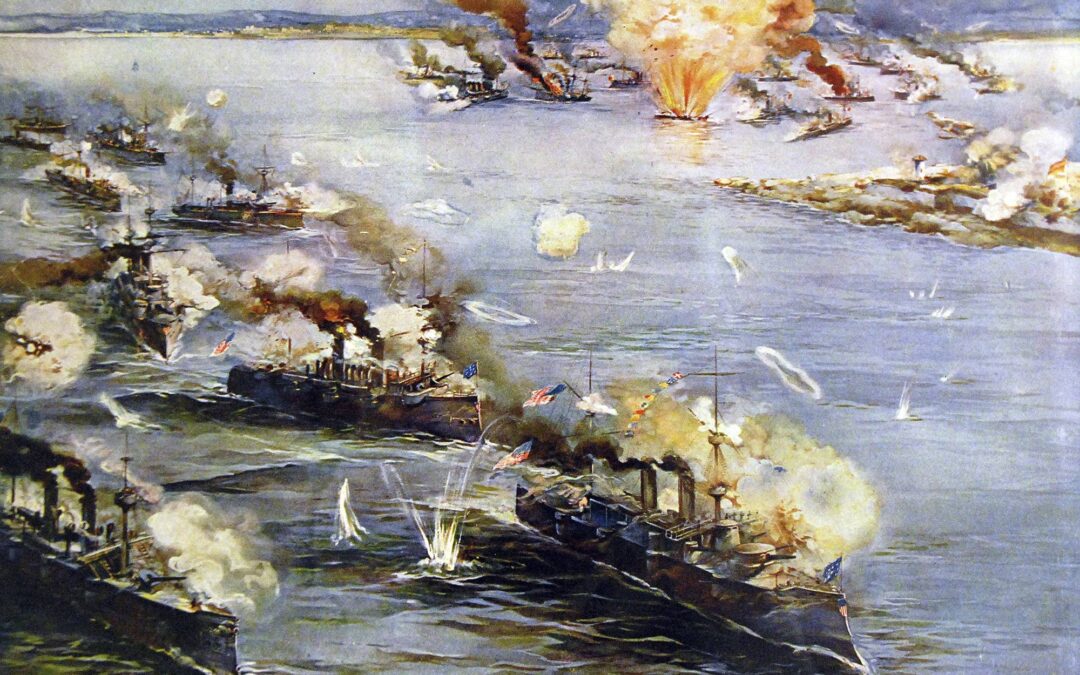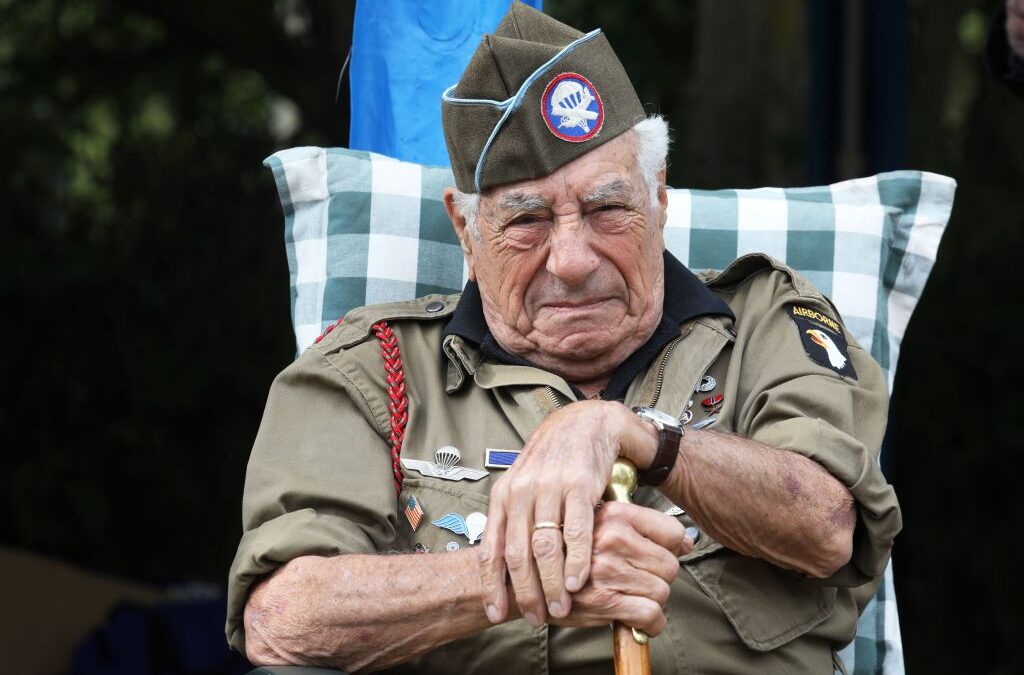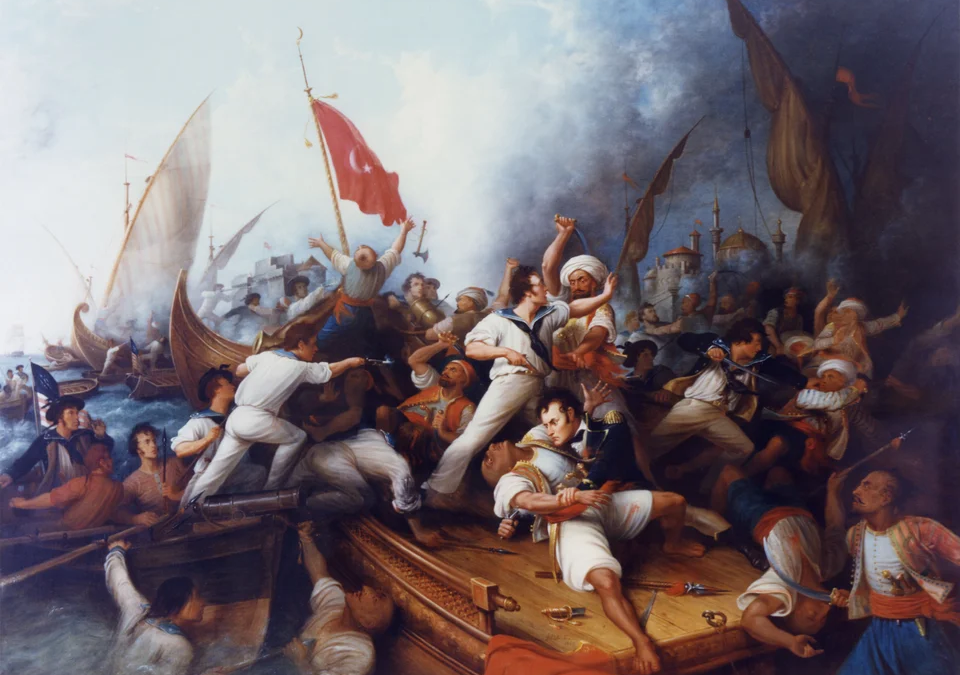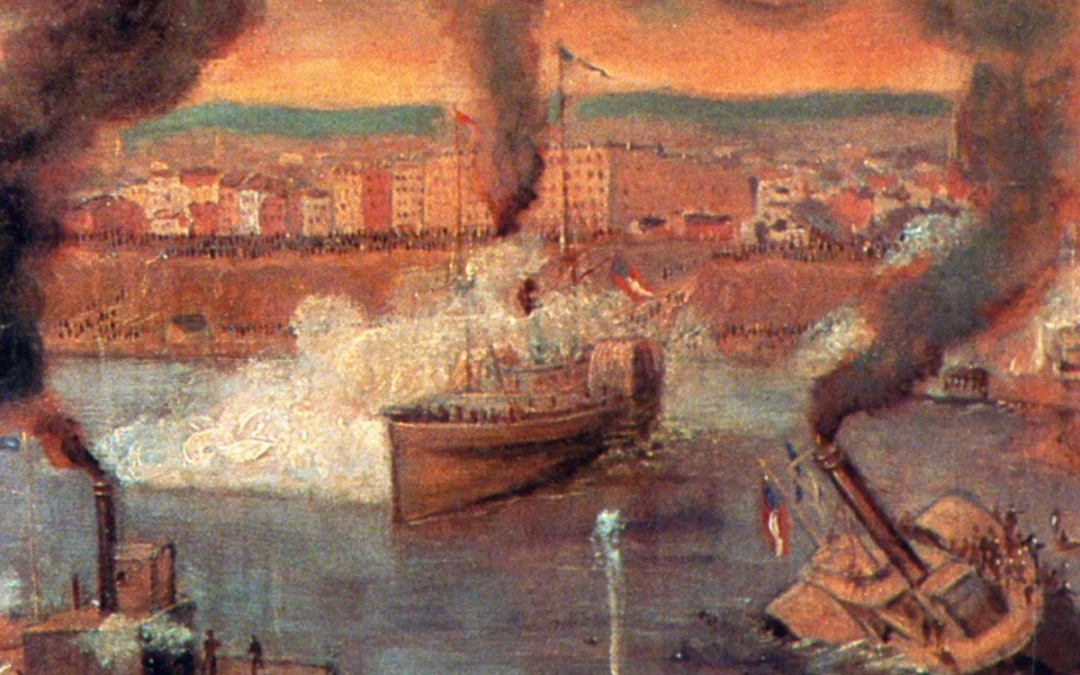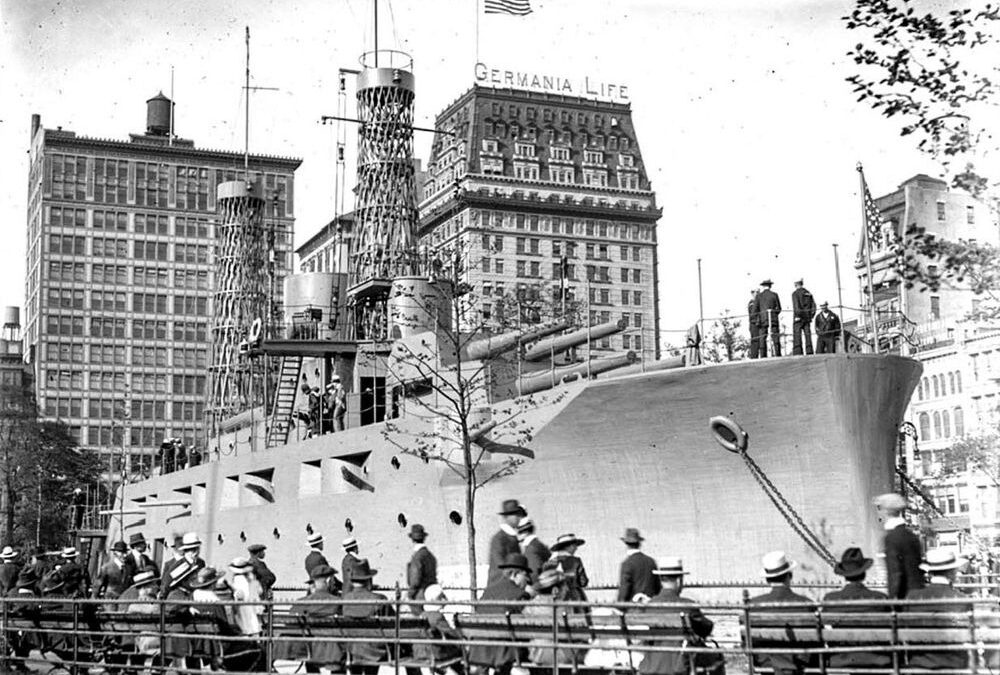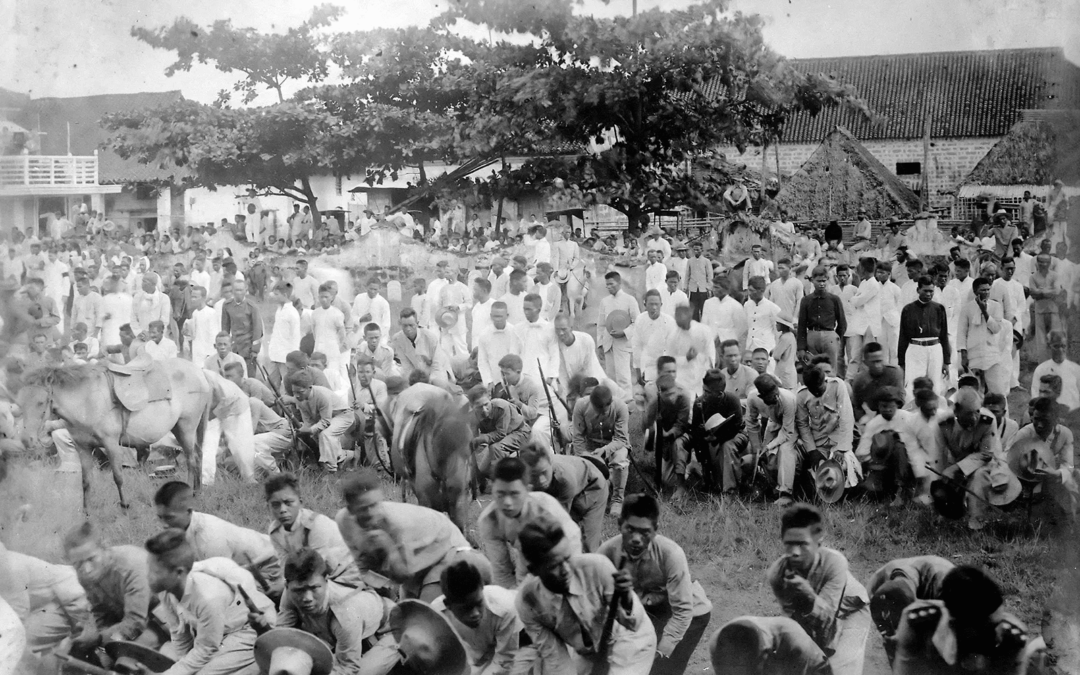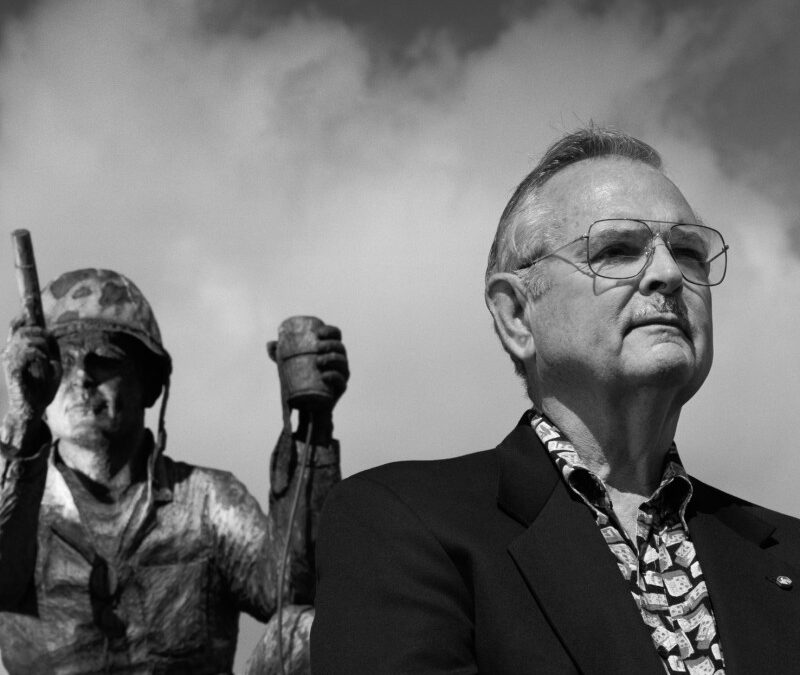PRESERVING A MILITARY LEGACY FOR FUTURE GENERATIONS The following Reflections represents EM2 Floyd Farrar's legacy of his military service from 1957 to 1962. If you are a Veteran, consider preserving a record of your own military service, including your memories and photographs, on Togetherweserved.com (TWS), the leading archive of living military history. The following Service Reflections is an easy-to-complete self-interview, located on your TWS Military Service Page, which enables you to...
